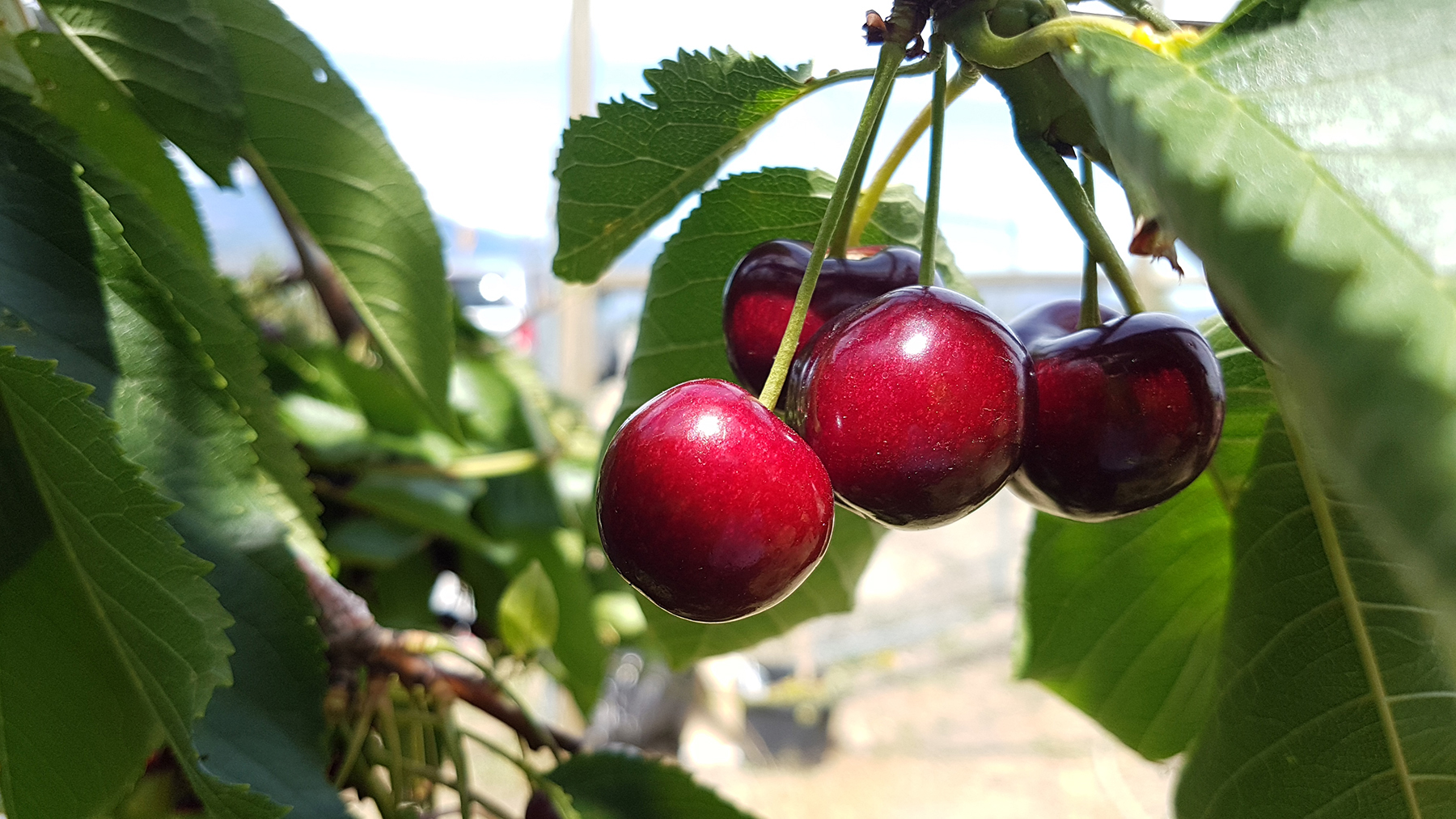KELOWNA – Cooler, clearer weather has finally beaten back smoke from the province’s worst wildfire season on record that delivered air quality worse than Beijing, but producer groups are reporting mixed effects.
Hank Markgraf, field services manager at BC Tree Fruits, says the smoky skies were the worst he’s ever seen, and that created problems for cherry growers.
“The smoke caused higher than normal humidity levels and that led to increased mildew pressure in cherry orchards,” he says. “If growers didn’t get on top of it with their sprays, it led to damaged fruit. It’s tough to have to tell a grower that their delivery to the packing house can’t be accepted because the fruit is damaged.”
While the smoke was an unprecedented phenomenon for Okanagan growers, it may have helped apple growers.
“The smoke cover gave us cooler temperatures and that slowed down the growth of the fruit to a more normal pace,” Markgraf says.
Apple trees don’t like constant 35-degree days, he explains.
“The trees will actually shut down and stop growing on hot afternoons. The fruit doesn’t get to size up and we get a lot of small apples like we saw last year, which is a nightmare for the marketing folks.”
The smoke also helped prevent sunburn in the apple crop.
“If we had had the bright intense sun that we know was there above the smoke day after day, we would not be in as good a shape as we are,” Markgraf says.
While residents across the province felt like they were living next to a campfire for days, Markgraf says the taste of apples won’t be affected.
“We do taste tests all the time and it is just not showing up,” he says.
Whether or not the smoke reduced photosynthesis and affected crops is not known at this time.
Touchy subject
The topic of smoke taint in the grape crop is a sensitive issue and one hard to predict.
“Nobody wants to suggest that their wine might be off,” Glenn McGourty from the University of California
Cooperative Extension told the BC Grape Growers’ Association at its annual general meeting this past April.
“We don’t like to use the word ‘taint’ but rather ‘smoky flavours,’” McGourty told growers.
Smoke flavours concentrate in the grape skin, so red wine – where juice usually sits on the skins during fermentation to yield colour – is more at risk than white wine.
Researchers at UBC Okanagan are researching ways to test grapes and predict the effect of smoke exposure on the finished wines, however.
UBCO assistant professor of chemistry Wes Zandberg, together with doctoral student Matt Noestheden, is working to develop a testing protocol.
“Although we have a sensitive and accurate smoke taint test for the grapes, ultimately we have to recognize that trying to predict how wine is going to taste from the chemical analysis of fresh fruit is challenging,” says Zandberg. “We can run our tests and we can give vineyards and winemakers a heads-up that they should be planning for the possibility, but really absolute certainty requires fermentation.”
Noestheden, who also works with the Kelowna company Supra Research & Development, confirms that they have been looking at quite a few samples from across the valley this year.
“I know that a number of wineries have gone to the length of doing a small batch fermentation to sample their fruit and we are involved with testing those,” he says.
Zandberg says wineries aren’t powerless in the face of smoke taint, noting several tools are available to address the issue.
“There is reverse osmosis, and you can think about blending wines,” he says. “We are really in the plan-ahead business so that growers can be thinking about their options.”
While smoke lay thick across the Okanagan in 2017 as well, Noestheden says he hasn’t heard of any issues with last year’s vintage. He’s optimistic that 2018 will have the same outcome even though conditions seemed worse.
“There are more people worried this year, but we still don’t have any evidence that there will be a problem with this year’s vintage,” he says.
Forage setbacks
Serena Black, general manager of the BC Forage Council, says there are some anecdotal reports from forage producers in the Cariboo that the quality of forage may be lower.
“I know a couple of people who have borrowed our testing equipment, so I will get some information back from those samples,” she says. “I certainly think it affected my home garden here in Prince George, but we don’t really know at this time.”


